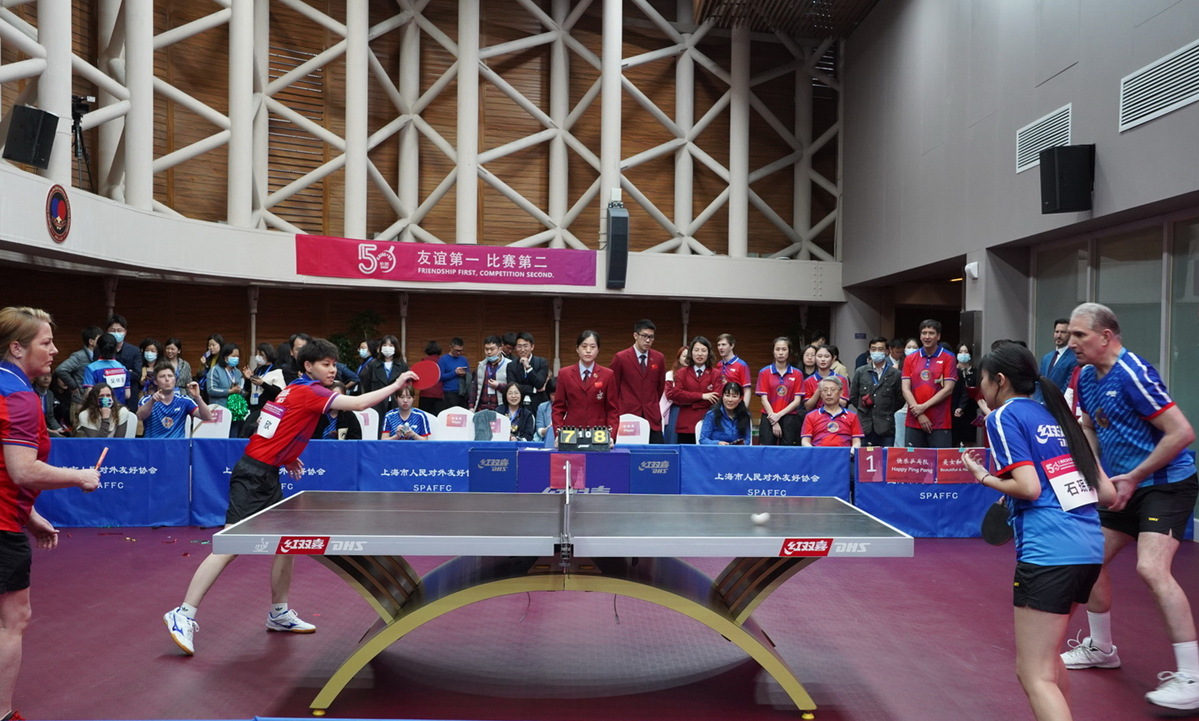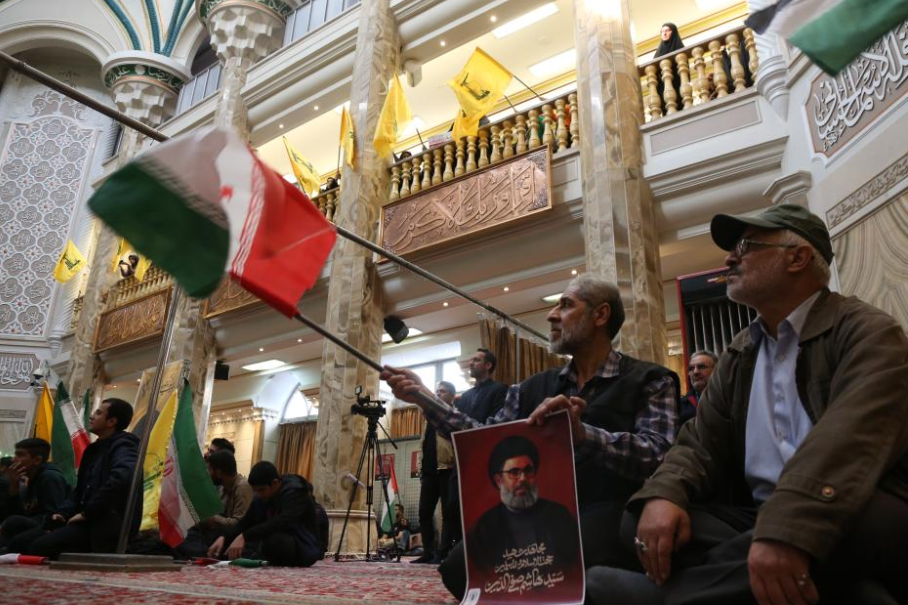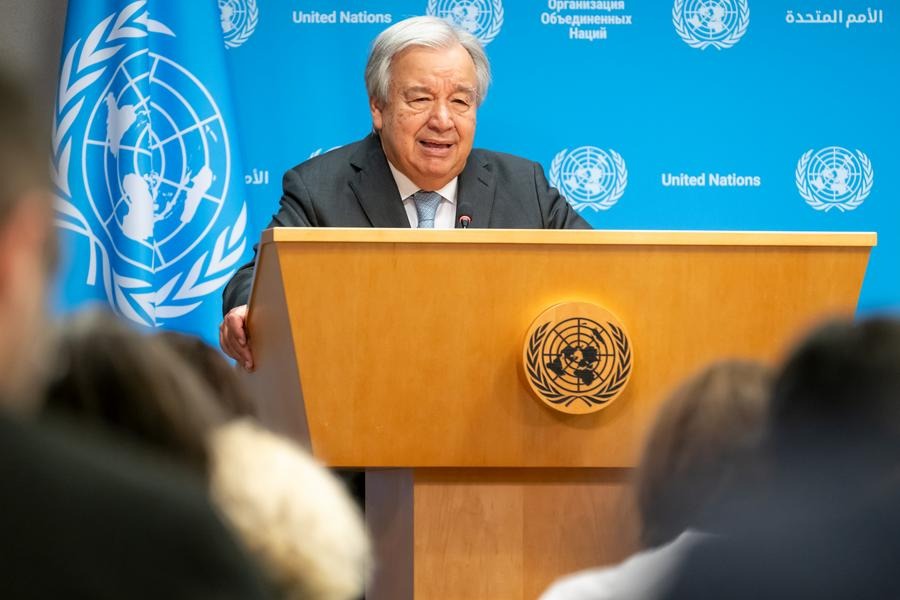Drawing on History and Looking to the Future to Advance China-U.S. Relations along the Right Track


In Commemoration of the 50th Anniversary of China-U.S. Ping-Pong Diplomacy
Yang Jiechi
I
This year marks the 50th anniversary of China-U.S. Ping-Pong diplomacy. In April 1971, the U.S. table tennis team, which was attending the 31st World Table Tennis Championships in Nagoya, Japan, paid a visit to China at the invitation of the Chinese table tennis team. One year later, the Chinese team made a return visit to the United States. During the visits, both teams were warmly welcomed and received by each other's country and people. The two sides enabled the little ball to move the big ball, thus thawing the ice of over two decades of estrangement between the two countries.
Back fifty years ago, the elder generation of Chinese and American leaders-Chairman Mao Zedong, Premier Zhou Enlai, President Richard Nixon and Dr. Henry Kissinger-acted in the common interests of the two peoples and demonstrated strategic vision and extraordinary political courage, with their strategic decision to reopen the door of exchanges between China and the United States. They were personally involved in the decision-making to bring about the Ping-Pong diplomacy. In July 1971, Dr. Kissinger paid a secret visit to China. In February 1972, President Nixon visited China. A "handshake that crossed the vast Pacific Ocean" was realized between China and the United States, which opened a new chapter in relations between the two countries.
II
Over the past five decades, China-U.S. relations have braved wind and rain and continued to move forward and score historic achievements. This has not only brought real benefits to the two countries and peoples but also contributed significantly to world peace, stability and prosperity.
Since the establishment of diplomatic ties, China-U.S. trade has kept growing on a steady basis. Despite the COVID-19 pandemic, trade in goods grew by 8.3 percent last year to exceed US$580 billion. In the first quarter of this year, two-way trade surged by 61.3 percent over the same period of last year. Such trade and economic cooperation has served the mutual benefit of the two sides over the years.
China and the United States have joined forces for the conclusion of the Paris Agreement on climate change, lending important impetus to global climate cooperation. On 22 April, President Xi Jinping attended the Leaders Summit on Climate at the invitation of President Joe Biden and delivered important remarks. President Xi underlined that China looks forward to working with the international community including the United States to jointly advance global environmental governance. At an earlier date, the two sides also released a Joint Statement Addressing the Climate Crisis in Shanghai. China and the United States worked together in responding to the 1997 Asian financial crisis and the 2008 international financial crisis, making important contribution to international financial stability and world economic recovery. China and the United States have carried out trilateral cooperation on food security in Timor-Leste and jointly combated Ebola in Africa. The two sides have also coordinated effectively in such fields as counter-terrorism, nonproliferation, anti-narcotics, disease prevention and control and peacekeeping, and have maintained communication and coordination on the Middle East and other regional hotspot issues.
Chinese leaders have been involved on a personal basis in promoting people-to-people exchanges between the two countries. Over the years, President Xi Jinping has attached great importance to and been personally engaged in people-to-people interactions between the two sides. His 30-year-long friendship with old friends in Iowa and his support to Elizabeth Gardner who, in her late 70s, fulfilled her late husband's wish to revisit Guling in Fujian province, are all fondly remembered stories of China-U.S. people-to-people exchanges.
Since the mutual visits between the two table tennis teams in 1972, Chinese and American table tennis players have engaged in frequent exchanges. In 2002, the Chinese table tennis team was invited to Chicago and Los Angeles, where three generations of table tennis players from both sides gathered to renew the friendship initiated by Ping-Pong diplomacy. The two sides have also enjoyed close exchanges and cooperation in the field of arts and culture and on natural disaster response, and have supported and assisted each other in addressing COVID-19.
There are now 50 pairs of sister provinces and states and 232 pairs of sister cities between the two countries. Even during the COVID-19 pandemic, people across sectors in the two countries have maintained frequent contacts, through either phone calls, correspondence or video conferences. All these come as the result of long-term dedication and commitment by Chinese and American peoples through generations, and all must be cherished and taken good care of by both countries.
III
As we commemorate the 50th anniversary of Ping-Pong diplomacy, we look back at the past journey of China-U.S. relations, with all its ups and downs, so that we could learn from history, stick to the present and open up the future. To say the least, that past history may give us the following three important inspirations:
First, China and the United States need to and are fully capable of living in peace and engage in win-win cooperation. The fundamental reason why the two countries were able to break the ice of long-term antagonism and estrangement to establish full diplomatic ties fifty years ago, and why they have since enjoyed fruitful cooperation across the board, lies in the very fact that both countries have managed to act in the shared interests of the two countries and two peoples, as they aspired to seek common ground while reserving differences on the basis of respecting each other's political systems and development models.
The Shanghai Communique of 1972 explicitly stated that "there are essential differences between China and the United States in their social systems and foreign policies. Yet, the two sides agreed that countries, regardless of their social systems, should conduct their relations on the principles of respect for the sovereignty and territorial integrity of all states, non-aggression against other states, non-interference in the internal affairs of other states, equality and mutual benefit, and peaceful coexistence". The two sides stated that progress toward normalizing China-U.S. relations served the interest of all countries. The Shanghai Communique, the Joint Communique on the Establishment of Diplomatic Relations, and the 1982 Joint Communique established the principles of mutual respect, equality and seeking common ground while putting aside differences as the guiding principles in conducting China-U.S. relations. They form the political foundation of China-U.S. relations.
It is not China's intention to dismiss the political system and development path of the United States or any country in the world. Nor is it China's desire to disseminate its own political system and development path elsewhere. Nonetheless, the Chinese people will never concede to anyone attempting to challenge the Communist Party of China, China's political system, or its structure of leadership. China will firmly defend its own sovereignty, security and development interests.
It is normal that China and the United States may have differences. What is crucial is that the two countries respect and treat each other as equals, and manage their differences constructively to ensure that the bilateral relationship move forward in the right direction.
Second, as the largest developing country and the largest developed country, and as the world's two largest economies and permanent members of the UN Security Council, China and the United States shoulder special global responsibilities and obligations, and share extensive and important common interests. China and the United States working together can make great things happen for the two countries and the world at large, while the two countries stuck in confrontation spells disaster for both countries and beyond.
Never before have countries in the world been so interdependent and so closely interconnected. Humankind are in a community with a shared future. No country can prosper in isolation or meet all challenges on its own. Embracing unity, cooperation and coordination is the only right way forward. China and the United States should keep pace with the times, and view and handle their relationship with a broader vision and mind. The two countries should work together toward a new model of major-country relations featuring non-conflict, non-confrontation, mutual respect and win-win cooperation, so as to make important contribution to peace and development in the world.
As a big developing country with 1.4 billion people, China has tremendous market potentials. We are stepping up efforts to foster a new development paradigm with domestic circulation as the mainstay and domestic and international circulations reinforcing each other. We will further improve the business environment that is based on market principles, governed by law, and up to international standards. All this will create greater development space for companies from around the world, including those from the United States. We are happy to see American companies succeed in China. We hope they will join us in keeping industrial and supply chains safe and stable for the benefit of both sides.
COVID-19 is the common enemy of humankind, and containing the pandemic should become a new platform for China-U.S. cooperation. Medical experts, research teams and businesses from the two countries should work more closely together on vaccine R&D and COVID response to contribute to the global fight against the virus.
Climate change concerns the future of humankind, and it calls for a joint response from all countries. China and the United States should work with other parties to better enforce the Paris Agreement and ensure the success of COP15 to the Convention on Biological Diversity, COP26 to the UN Framework Convention on Climate Change and other events, so as to contribute to the global endeavor to address climate and environment challenges and build a community of life for man and Nature.
China is ready to enhance cooperation with the United States on counter-terrorism, non-proliferation and other international and regional issues as well as under multilateral frameworks including the United Nations and the G20, so as to jointly safeguard regional and world peace, stability and development.
Third, people-to-people exchange is an important foundation and enduring driving force for the sound and steady development of China-U.S. relations. "Amity between the people holds the key to state-to-state relations." Over the past five decades since Ping-Pong diplomacy, people-to-people exchange has played an increasingly important role in upholding and advancing China-U.S. relations. Communication and interaction between the two peoples from various sectors help to deepen mutual understanding and friendship between the two countries, expand common interests of the two peoples, and facilitate sound development of bilateral relations. In recent years, some in the United States, out of the Cold-War zero-sum mentality, have caused disruption and created obstacles to normal people-to-people exchanges. They stood on the wrong side of history and moved against the will of the people, and their attempt enjoyed no support from the people.
It is the people that make history. Every day stories take place of friendly exchanges between the Chinese and American peoples. Last month, the fifth China-U.S. Subnational Legislatures Cooperation Forum was successfully held online. Leading officials of seven Chinese provincial legislatures and seven U.S. state legislatures spoke at the event. Chinese and U.S. friendly organizations co-hosted the China-U.S. Agriculture Roundtable. Leading officials of agricultural departments, representatives from subnational governments, the business community and educational institutions of both countries, as well as members of the U.S. Congress attended the event and sent video messages. And they actively explored opportunities for business, educational, and think-tank exchanges and cooperation. Earlier this month, the two sides held commemorations in Beijing for the 50th anniversary of Ping-Pong diplomacy. Chinese Vice President Wang Qishan and former U.S. Secretary of State Dr. Henry Kissinger delivered important remarks through video links, and representatives from political, business, academic, sport and other sectors of both countries attended the event. Chinese and American participants who were involved in Ping-Pong diplomacy 50 years ago played a virtual ping-pong game in a lively atmosphere that touched the hearts of the audience in both countries.
It is now important that we listen to the call of the people on both sides for peace, development and cooperation, and work to create enabling conditions for exchanges and cooperation at the subnational levels and between businesses, think tanks, media and non-governmental groups of the two sides, so that more will join, benefit from and become supporters of China-U.S. relations.
We see in front of us the unstoppable trend of friendly exchanges between the Chinese and American peoples, as well as the common aspiration of the two peoples and the wider world for China-U.S. relations to maintain stability and grow further. We hope that the United States will work with China to carry forward and promote the spirit of Ping-Pong diplomacy. We hope the two sides will act on the guidance of the phone call conversation between President Xi Jinping and President Joe Biden, take a clear grasp of the global trend, and go along the tide of the times. We hope the two sides could focus on cooperation, manage differences, move China-U.S. relations forward in a sound and steady manner, and work with other countries in the world to jointly advance the noble cause of world peace and development.
The author is a member of the Political Bureau of the Communist Party of China Central Committee and director of the Office of the Foreign Affairs Commission of the CPC Central Committee.

































